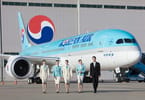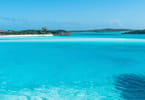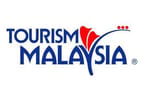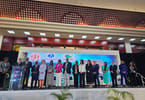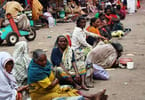ZURICH – On any given day in the busy summer season, Godi Supersaxo dons a giant bird suit and entertains young guests at his family’s 71-year old Swiss hotel in Saas Fee, a car-free mountain village that is also home to the highest revolving restaurant in the world.
In winter, Godi, 36, will even ski in character — “Gosolino.” And at some point during the week, he and his father will play the glockenspiel, blow the traditional alpenhorn and put on a flag throwing display at their three-star hotel. But even all this effort may not be enough to entice holiday makers who – thanks to the strong franc and faltering global economy this summer – may not choose Switzerland as a holiday destination.
“It’s been much more difficult to get new clients from the U.K.,” said Godi, who along with his entire family, manages the Alphubel Hotel. “The Europeans are still coming but they are spending less.” According to Switzerland Tourism, German, British, French and Italian visitors account for about a third of all overnight stays in the country, while 43% come from Switzerland itself. Americans make up 3.9%.
Tourism, as much as cows, banking and chocolates, is a critical part of the culture of Switzerland, which started attracting mainly mountaineering visitors about 200 years ago. The sector employs, both directly and indirectly, 7.3 percent of the population and crucially, many of the people living in the mountain areas. Its significance as an employer overshadows its 3% contribution to gross domestic product.
At 4 percent, Switzerland has one of the lowest unemployment rates in the world, which helps maintain stability in a country that has four official languages and distinct cultures, two main religions and little in common among the people other than their “Swissness.” Stability is one of the country’s biggest assets, particularly prized by the country’s financial industry, the real engine of the economy. This, along with high gold reserves, makes the franc attractive to investors who look for safe haven in times of economic uncertainty. The franc has surged 6 percent against the Euro since the start of the Greek debt crisis in May. Since the global economic meltdown in 2008, it has soared 15 percent against the British pound.
The strong franc means places like Austria, France and Italy are much less expensive for potential tourists, many of whom are already facing smaller wage packets and job cuts. About one in 10 people are now unemployed across the EU – same as the US. As a result, fewer visitors are again expected to visit Switzerland’s 5,533 hotels this summer, which accounts for more than half of the entire years’ takings. While the winter 2007/2008 season broke tourism records, overnight stays between May and October are expected to slip 0.7 percent from last year, according to a study prepared for the government. 2009 had already seen a drop of 4.7% stays from the previous year, reported hotelleriesuisse, the Swiss Hotel Association.
“Tourism is politically and economically very important because it’s part of the identity of the Swiss people, especially the rural values. And in many mountain areas, there are no alternatives,” said Thomas Bieger, a professor at the University of St.Gallen Institute for Public Services and Tourism.
The A-List
Zurich, Geneva, royalty-heavy ski area Zermatt and Lucerne top the list of most visited cities. The Matterhorn, the Jungfrau and Rigi mountains are among the most popular sights. Accommodations vary from the 5-star luxury hotels favored by hedge fund managers to modest mountain huts for hikers. Shockingly high prices keep low-budget tourism at bay. A small bottle of water costs $3.50 -$5 anywhere in Switzerland.
For those looking for something different, the Null Stern, or no star hotel, in canton St. Gallen in the east of the country welcomes guests to its converted nuclear bunker. There is also “The Blind Cow” Restaurant in Zurich and Basel, where diners eat in total darkness and are waited upon by blind and partially sighted servers. Switzerland is even home to Europe’s largest kosher hotel, according to Swissinfo. The Scuol Palace, located in the Romansch-speaking mountain area, boasts separate swimming times for men and women as well as three synagogues. However, the hotel, which has little contact with local and national tourist offices and isn’t answering the phone or email, may have become a victim of the economic downturn.
According to Professor Bieger, it’s the “specialized” sights that are most cushioned from currency swings. “Prices matter when it comes to generic products, like ski or hiking holidays, where you can easily get the same thing in another country,” he said. Even before the franc’s surge, Switzerland was already considered eye-watering expensive. While a McDonald’s Big Mac costs $3.57 in the US, the same meal sets you back $5.98 in Switzerland, making the currency 68% overvalued against the dollar, according to The Economist newspaper’s “Big Mac Index.”
But there is some good news for Switzerland’s restaurants and hoteliers. More of their fellow citizens are expected to holiday locally, due in part to the continued travel chaos caused by Iceland’s erupting volcano. The prospect of public sector strikes, which haunt the European tourism sector at the best of times, may also help convince people to stay local. High wages across the board mean industrial action is practically unknown here. Alphubel’s Supersaxo said there is a noticeable increase of home-grown visitors in his town of Saas Fee.
And thanks to a healthier dollar, which has risen 15 percent against the franc since the beginning of December, more North American visitors are expected this summer. “We are having a better year than 2008 and 2009,” said Pepe Strub, director of travel company Magic Switzerland. About 700,000 North Americans visit Switzerland every year and “very positively, the first 3 months of 2010 showed a growth of 6% compared to the same period in 2009,” said Urs Eberhard, Executive Vice President Switzerland Tourism.
However, it’s a mixed bag for the very top of Swiss tourism — the five star hotels. “People pay for the [excellent] service” and are therefore, less concerned about fluctuating currencies, said Isabelle Berthier, Director of Sales at Hotel d’Angleterre in Geneva, the home of Swiss private banking. About 80% of the 45-room hotel’s client base is corporate and therefore, much more sensitive to the health of the global economy. “Business is coming back because most companies are doing better this year.” But the recent slide may reverse that trend, at least for those dependent on corporate largesse.
As the 2010 summer season gets underway, most Swiss hoteliers and tourism officials are still buoyant. While no one expects a bumper year, they’re still hopeful the country’s fresh air, stunning scenery and dependable transport infrastructure will bring in the crowds. “We haven’t raised our prices in two years but I’m not worried,” said Valerio Presi, owner of Albergo Carada, a small mountain hotel a gondola ride away from the Italian-speaking city of Locarno. “After all, Switzerland will always attract tourists because it’s just so beautiful.”
WHAT TO TAKE AWAY FROM THIS ARTICLE:
- On any given day in the busy summer season, Godi Supersaxo dons a giant bird suit and entertains young guests at his family’s 71-year old Swiss hotel in Saas Fee, a car-free mountain village that is also home to the highest revolving restaurant in the world.
- At 4 percent, Switzerland has one of the lowest unemployment rates in the world, which helps maintain stability in a country that has four official languages and distinct cultures, two main religions and little in common among the people other than their “Swissness.
- And at some point during the week, he and his father will play the glockenspiel, blow the traditional alpenhorn and put on a flag throwing display at their three-star hotel.




